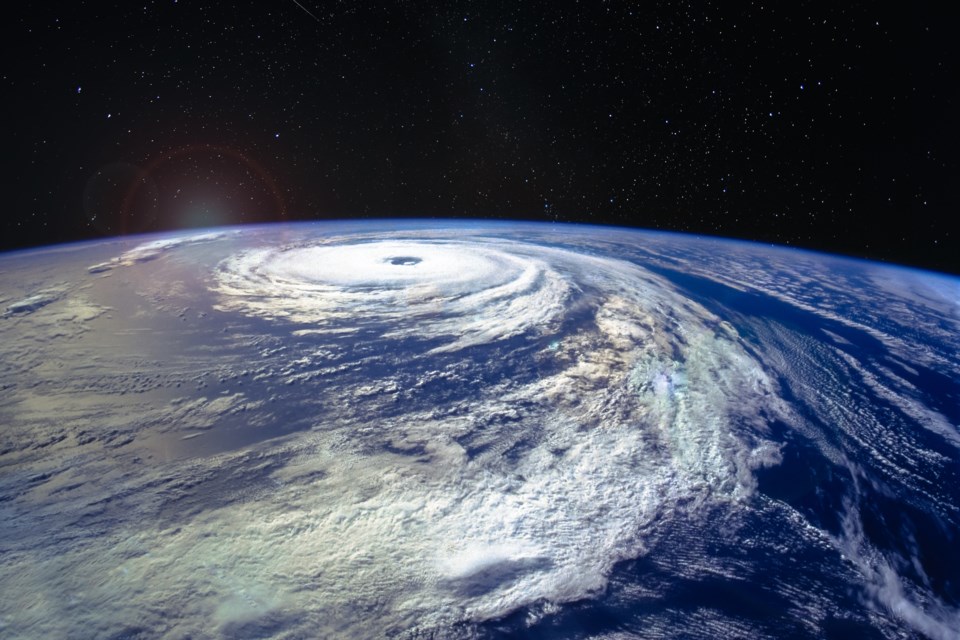How hot is it going to get?
This is one of the most important and difficult remaining questions about our changing climate. The answer depends not only on how sensitive our climate is to greenhouse gases, but also on how much carbon dioxide (CO2) and other greenhouse gases we as a civilization choose to emit over coming decades.
In order to help think more clearly about this question, we asked authors who have contributed to the reports of the Intergovernmental Panel on Climate Change (IPCC) to share their best guesses about where the world is headed.
The show that most of the responding climate experts believe our planet will likely exceed the 1.5 C and “well-below 2 C” warming targets agreed upon by the international community.
In fact, the median estimate was 2.7 C by 2100, which is roughly what is expected if the world’s nations fail to implement new policies consistent with their targets and pledges, and instead only maintained existing levels of action.
To put it plainly, this could be a . We’ve already seen devastating consequences like more flooding, hotter heatwaves and larger wildfires, and .
But not all authors think alike and to help shed further light on the IPCC report process, and any differences of opinion between authors, we conducted a survey over email with 211 authors of past reports providing responses. Our participants represented all IPCC working groups, and every inhabited continent.
The data they shared provides a fascinating glimpse into the dynamics of modern climate science.
Wide ranging beliefs
Our survey shows that authors shared a wide range of estimates as to likely climate outcomes.
A small number of surveyed experts believe that staying below 2 C is still likely, while others believed that we are on track for even more horrendous levels of climate warming at above 3 C. Approximately 86 per cent of participants estimated warming of more than 2 C by or before the year 2100.
When we planned the study, we wondered whether IPCC authors who worked on climate solutions would be more optimistic than those who worked on climate vulnerability and adaptation. One reason for this is that experts who work on solutions might be more aware of . But we only found weak evidence for this hypothesis.
In some ways this is a good sign, as it suggests that researchers are not working in isolated silos, each holding their own beliefs.
Mixed perceptions
A unique feature of the study is that we also asked IPCC authors what they thought others in the survey would answer in response to the same questions. We were interested to know the extent to which experts in this field believed that other experts shared similar beliefs to their own. Perceptions of peer beliefs are important .
Participants in our study believed very strongly that their peers’ views on expected future warming were in line with their own beliefs. Even those who expected very high or very low amounts of future warming incorrectly believed that their peers would have similar estimates.
This is not particularly surprising. In many domains, . Researchers call this a and we found that this effect was very prominent in our results.
Because IPCC authors are trusted public figures who are often asked to share their thoughts with decision-makers and the media, this finding could be problematic if an author confidently believes that their expectations are also widely shared by their peers.
Interdisciplinary benefits
We see our study as an opportunity for experts to better understand the range of beliefs held by their own community, so they can communicate with more nuance and awareness as to whether their personal beliefs are part of a larger consensus or not.
Climate experts are not oracles. And even though a “wisdom of the crowd” average is often more accurate than a single expert, decades into the future is extremely difficult.
The balance of evidence from this study reaffirms a message that climate scientists have been repeating for a long time: current efforts to tackle climate change are insufficient and more progress is needed quickly.
While working on this project Seth Wynes received funding from the Social Sciences and Humanities Research Council of Canada.
H. Damon Matthews receives funding from the Natural Sciences and Engineering Research Council of Canada and from Environment and Climate Change Canada.




